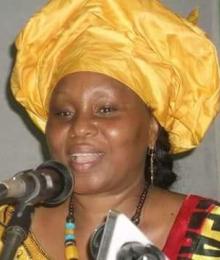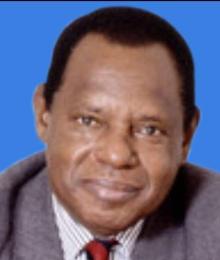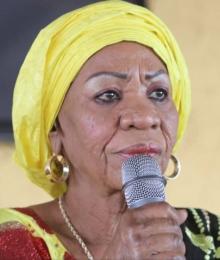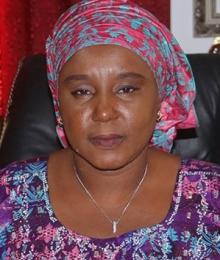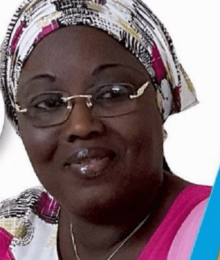
Aminata Touré (December 12, 1952 – January 12, 2022) was a Guinean politician, a trained lawyer, and the eldest daughter of Ahmed Sékou Touré, the first president of independent Guinea. After working in the legal field and going into exile in Morocco following the 1984 coup d'état, she returned to Guinea to pursue entrepreneurship, initially in communication and later in construction.
Her notable entry into politics came in 2018 when she won the municipal election in Kaloum, a strategic commune in Conakry that houses the presidency and the country's main institutions, making her the only female mayor of an urban commune in Guinea. Nicknamed the "Syli Woman," she was known for her close connection to the people, her environmental and social commitment, and her defense of the ideals of independence upheld by her father, while embodying a modern vision that balanced free enterprise with social concerns until her death in Morocco after a long illness.
Introduction
Eldest daughter of the first president of independent Guinea, a successful businesswoman, and a prominent political figure, Aminata Touré forged her own path while carrying the prestigious legacy of her family. Her remarkable journey, marked by exile and a return to her roots, reflects a deep commitment to her country and its values.
Earlier Life and Origins
Born on December 12, 1952, in Conakry, Aminata Touré is the eldest daughter of Ahmed Sékou Touré, the founding father of Guinean independence and the country's first president. She grew up in the presidential palace in the Kaloum district, a place that would later become the stage for her own political career.
Her childhood was shaped by the values instilled by her father: hard work, humility, and integrity. Despite her privileged status as a presidential child, Aminata recalls a strict and community-oriented upbringing. "My father never enriched himself at the expense of Guineans. When we were little, he made my siblings and me walk to school — we didn’t have a chauffeur. We even made madeleines for poor children," she once shared.
She holds precious memories from that time, particularly "family dinners at the palace, very late at night," and the moment when, seriously ill, her father personally carried her to the hospital.
Education and Professional Career
Trained as a lawyer, Aminata Touré worked at the juvenile court and led the land court of Mafanco, demonstrating an early dedication to justice. Her life took a significant turn in 1984 with the death of her father.
Following the military coup that ensued after Sékou Touré's passing, Aminata chose exile in Morocco, where she reinvented herself as an entrepreneur in the communication sector. Later, she returned to Guinea to venture into the construction industry, building a solid reputation in the business world.
Political Career
Though she had been a supporter of the PDG (Parti Démocratique de Guinée), the single-party founded by her father, Aminata distanced herself from politics during her exile. It wasn't until 2018, at the age of 64, that she decided to fully engage by creating an independent list named "Kaloum Yigui" ("The Hope of Kaloum").
Her decision to run in the local elections of February 4, 2018, in the strategic commune of Kaloum marked her significant return to the Guinean political scene. Against all odds, she achieved a landslide victory, securing unanimity with all 29 councilors' votes.
This victory was particularly symbolic because Kaloum, the smallest yet most significant of Conakry's five communes, houses the presidency, public administration, and numerous institutions. Her win was seen as a significant blow to the ruling party, the RPG (Rassemblement du Peuple de Guinée).
Political Leader
Nicknamed the "Syli Woman" after Guinea’s national symbol, Aminata Touré became the only female mayor of an urban commune in Guinea. This unique position came with significant responsibility, which she assumed with determination.
During her term, she stood out for her commitment to improving sanitation and urban development. "I dream of Kaloum becoming what it once was," she declared during her campaign, promising "a clean and modern city." Her passion for environmental issues and her pragmatic approach to local governance earned her the respect of her constituents.
As a businesswoman turned politician, she embodied a new model of female leadership, blending economic pragmatism with social awareness: "I am a woman of my time, a realist. As a construction entrepreneur, I believe in free enterprise, but we must not forget the social aspect."
Political Vision
Aminata Touré maintained a complex relationship with her father’s legacy. While proud of his historical role, she held a nuanced view of his regime: "It is a pride to be the daughter of the man who took a strong stance on October 2, 1958, not just for Guinea but for all of Africa."
Regarding the controversial aspects of Sékou Touré's rule, including purges and disappearances at Camp Boiro, she preferred to leave judgment to history: "Time will tell. It will take time to fully understand what happened."
Nonetheless, she staunchly defended the historical significance of Guinea’s "No" to France in 1958: "We were the first country to demand our sovereignty. Later, others followed. So it is thanks to Guinea that all of Africa was liberated from colonial rule."
On France, the former colonial power, she believed that an apology to Guinea for its actions during independence was due.
Social Commitment
Beyond her administrative duties, Aminata Touré was recognized for her humanitarian commitment, particularly to children, and her approachable and sociable nature. She embodied a relatable political figure who did not hesitate to connect with the residents of her commune.
On the 61st anniversary of Guinea’s independence on October 2, 2019, she made a heartfelt call for national unity: "We must show all of Africa that we are united. If we want peace to prevail in this country, we must join hands, love each other, and work together to develop our nation."
Final Years and Legacy
After years of dedication to her commune, Aminata Touré fell seriously ill. She gradually withdrew from public life to focus on her battle against the illness that eventually claimed her life on January 12, 2022, in Morocco, at the age of 69. According to some sources, she passed away from pancreatic cancer.
Her passing plunged Guinea into mourning. Tributes poured in from both the government and the opposition. The head of the ruling military junta at the time, Colonel Mamady Doumbouya, expressed his "deep condolences to the bereaved family and the people of Guinea" for this loss.
In honor of her memory, the Guinean flag was flown at half-mast at the Kaloum City Hall. She left behind five children and a unique political journey that has left a mark on Guinea's contemporary history.
Conclusion
Aminata Touré will be remembered in Guinea’s collective memory as a pioneer — the daughter of the father of independence who became a key figure in national politics. Her extraordinary journey, from exile to a triumphant return, reflects the resilience and determination of a woman who forged her own path while honoring her family's legacy.
A respected political figure, accomplished businesswoman, and defender of her father’s values, she embodied a unique blend of tradition and modernity, loyalty to the ideals of independence, and economic pragmatism. Her premature departure leaves a void in Guinea’s political landscape, yet her example continues to inspire new generations of female leaders in West Africa.












